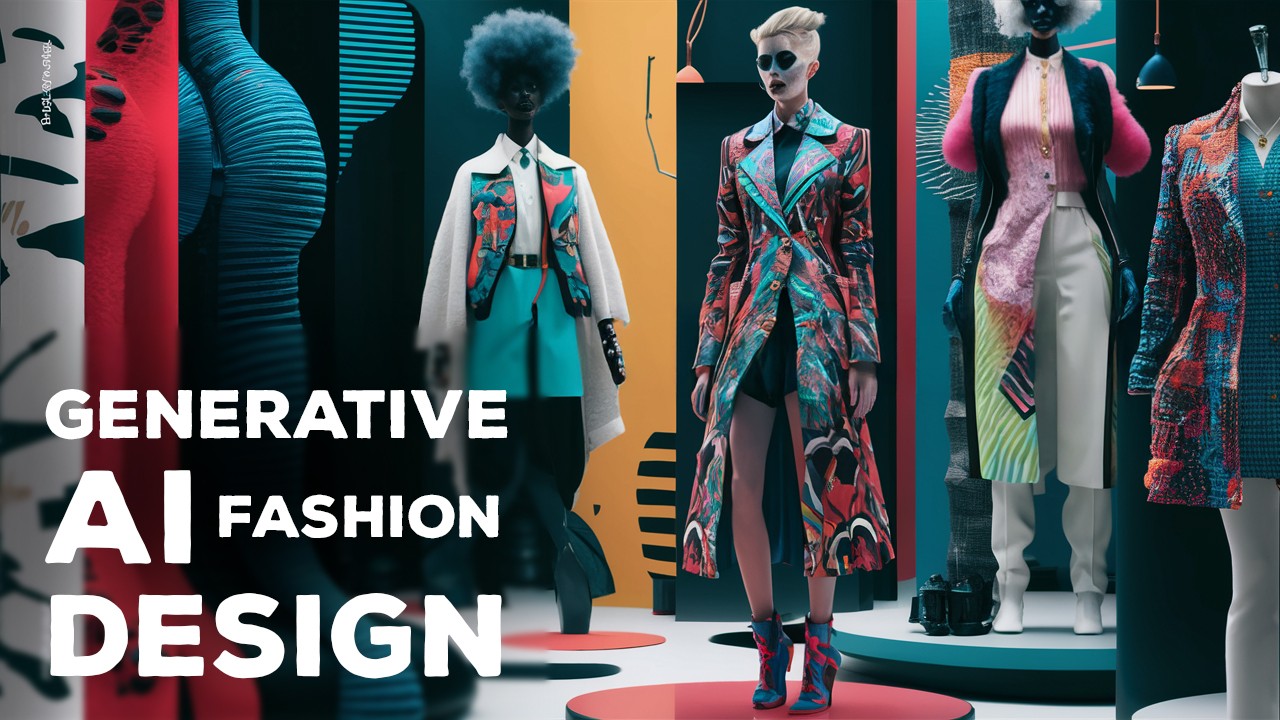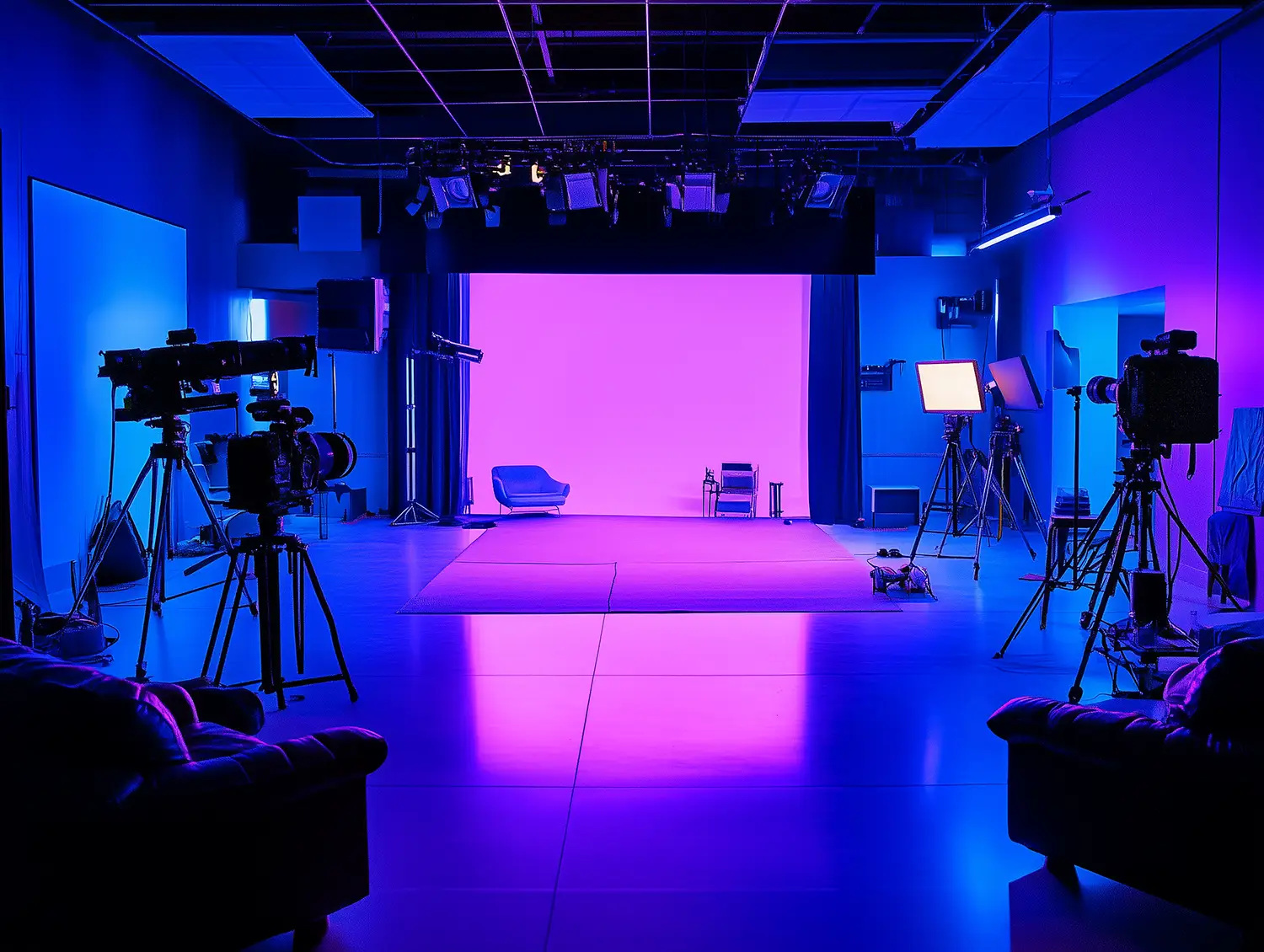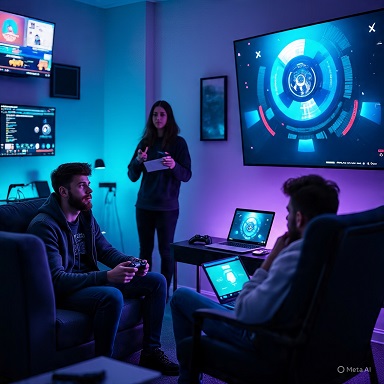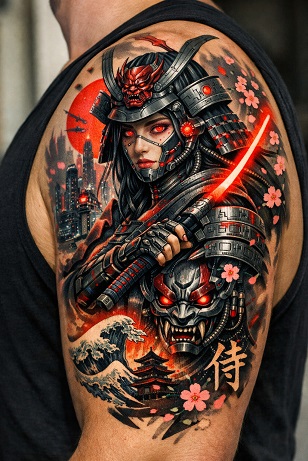Stories you may like
How AI is ‘amplifying creativity’ in the fashion world
The impact of artificial intelligence on the creative industries is a subject that has prompted widespread anxiety about job losses and the death of imagination, and the world of fashion is no exception.
But this month’s London fashion week, marking the event’s 40th anniversary, will showcase a host of AI-generated outfits and industry insiders have expressed a growing optimism about what the technology can do for the sector – from improving diversity to shortening the path from design desk to shop floor.
The head of London College of Fashion’s Innovation Agency, Matthew Drinkwater, believes AI will prove a “hugely beneficial tool” for creative processes and for the industry as a whole.
“It has opened the door to non-traditional pathways into the fashion industry for people who couldn’t get into it before because, let’s face it, the industry can have a perception of feeling quite elitist and quite exclusive, and an expensive industry to get into.
“But these tools are allowing people from very different backgrounds to begin to have a foothold in the industry. And for me, that feels really new and exciting,” he said.
Brands such as Heliot Emil, Zara and H&M are already using AI to control supply chains, which they say promotes sustainability by reducing overstock and waste. Many brands are also using AI to help the design processes, with images of clothes generated from typed prompts, visualising different materials and patterns. This allows designers to make informed decisions before physically producing clothes.
The consultancy McKinsey predicted last year that generative AI – the term for technology that can produce convincing images, text and audio from simple human prompts – could add $150bn to $275bn (£120bn to £220bn) to the operating profits of the fashion and luxury sectors within the next three to five years. Predicting future fashion trends and creating virtual try-ons using AI are also predicted to be just around the corner.
Drinkwater has been working with his team to look at how AI could change the industry, testing generative AI’s ability to create clothing for years. “We were scraping websites to try to get lots of data so that we could create dresses from more than 40,000 images. It was actually really hard work to do four years ago but now we open our laptops, even our smartphones and start generating images very quickly,” Drinkwater said.
A collaboration between VFX and AI artist Atara and the Fashion Innovation Agency at the London College of Fashion in March 2023.
“So typically, we take stuff which is maybe three to five years away from commercialisation and begin to show those research projects around where the future of the industry might move to,” he added.
In April last year Cyril Foiret’s generative AI studio, Maison Meta, hosted the first AI fashion week in New York, which included a competition for aspiring designers to use AI to create a fashion line. The winners were able to have their collections physically manufactured to be sold online with retailer Revolve. As in other industries, AI has come to be associated with job redundancies and critics argue creative artistry could be wiped out. But Foiret argues that there is little to fear.
“AI is such a powerful tool that is amplifying creativity. People thinking jobs are going to reduce shouldn’t think like that. We all just need to get accustomed with the tools, but if it is just a tool without a person behind it, it’s of no use,” he said.
Arti Zeighami, a former chief data and analytics officer at H&M and now senior adviser in AI for consulting firm BCG, agrees that AI can be used as a force for good within fashion. “Being transparent about AI helps people to not be afraid and allows them to be comfortable and still feel in control, it’s the transformation of the mindset of the human that is important,” he said.
“The AI will evolve as a technology either way we need to evolve alongside with it, but we haven’t come to the terminator stage not yet, at least”.
The TUC’s AI lead, Mary Towers, said AI could be a useful aid for workers in the creative sector, but that it shouldn’t be hijacked to replace human creativity.
“We need new laws to ensure that all workers in the arts – including fashion – are consulted and properly compensated if their work and intellectual property is used by AI,” she said.
“We have already seen performers in the UK having their image, voice or likeness reproduced by AI technology without their consent. We can’t afford for this to become the norm in other industries too. That’s why we urgently need fresh regulation to protect workers’ creativity and copyright.”
An incredible self-own
In 1936, John Scott, son of the late Guardian owner and legendary editor CP Scott, did something unheard of for a media heir: he gave up his stake for the greater good.
After inheriting the newspaper, Scott renounced all financial benefit – bar his salary – in the Guardian (worth £1m at the time and around £62m today) and passed ownership over to the newly formed Scott Trust. The Trust would evolve to have one key mission: to secure the financial and editorial independence of the Guardian in perpetuity.
That means the Guardian can’t be bought. Not by private equity, not by a conglomerate, and definitely not by a billionaire looking for a political mouthpiece.
Our independence means we can say what we want, report on who we want, challenge who we want, and stand up at a time when others are sitting down.
But this unique model also means we depend on readers like you from India to help fund our work. If you would rather the news you read was the result of decisions made by journalists and editors, not shareholders or ultra-wealthy tech bros, then, well, you know what to do:
Benefits of AI in Fashion Industry
AI technology has greatly transformed the fashion industry by providing various benefits that have completely changed how fashion companies operate. Automation of workflows powered by AI has simplified processes, while reducing errors made by manual and also increasing efficiency. AI advancements within the fashion sector provide personalized advice which allow clients to receive personalized fashion guidance. AI in fashion industry can also facilitate the design of fashion products that are customized which are tailored to each person’s individual tastes and dimensions. Below are a few advantages that come from artificial intelligence in fashion industry:
1. More Personalization
With AI, brands can customize their products as well as services to match the individual taste of the customer. Through the analysis of consumer behavior and purchase history, it can suggest clothing, accessories, and styles that fit each customer and their unique preferences, which improves customer satisfaction and loyalty.
2. Better Inventory Management
AI for fashion also helps to optimize inventory management in fashion industries. AI is used to predict demand by analyzing trends, sales patterns, and consumer preferences. The brands will also be able to follow through with unsold inventory, therefore reducing wastage and making their operations process efficient altogether.
3. Design Process
AI helps designers by using data from current trends, materials, customer preferences, etc. Armed with this treasured intel, AI then recommends design ideas, color palettes, and materials to align with marketplace needs. As a result, it improves workflow, resulting in designs that fulfill the customer’s needs and the fashion at that time.
4. Enhanced Customer Engagement
Another advancement of AI in fashion that is of great importance is chatbots and virtual assistants, which are already taking customer service to the next level. They are available 24/7 to instantly respond to queries, provide styling tips, and assist with product recommendations. This directly translates to enhanced customer satisfaction, higher engagement, and stronger brand loyalty, as the customers feel supported at every stage of their journey.
Case Studies: Real-World Examples of AI in Fashion
The use of AI in fashion is increasingly being adopted by some of the leading fashion brands to optimize their marketing campaigns and personalize the consumer experience. AI enables them to create quality images, rework their marketing strategies, and provide hyper-personalized services. Artificial intelligence in fashion is creating possibilities and also bringing efficiency in the fashion industry from digital fashion to personalized products.
Case Study 1: The Fabricant’s Digital Fashion Collections

The Fabricant is a pioneering digital fashion house that creates garments that exist only in a digital center. Using 3D design tools and artificial intelligence, they create incredibly intricate virtual fashion collections, which customers can wear in virtual reality, making fashion more accessible and innovative.
Case Study 2: Adidas’ Speedfactory

Using AI and robotics to change the way shoes are made speeds up production processes while enabling considerable customization. Consumers can provide feedback on design decisions, making the product cycle quicker and much more customized, and enhancing the consumption experience altogether.
Case Study 3: SEDDI’s Textura AI-Powered Textile Digitization Platform

SEDDI Textura translates physical fabric using AI into a digital format so it functions in virtual fashion design. Textura accurately creates fabric textures and properties by training all its AI algorithms through vast datasets, sourced from different fabrics, that allows designers to simulate textiles for digital garment creation to a high degree of accuracy.
Challenges of Implementing AI in Fashion
It’s clear that the incorporation of AI in the fashion industry offers enormous opportunities, but it is also vital to address its challenges. While AI will drive the fashion industry, the challenges should be approached carefully to ensure that AI acts positively and responsibly within the industry.
Data Privacy
Data privacy is one of the biggest pain points that arise in implementing AI in fashion. AI models consume huge amounts of personal data, so handing over that data to AI in the fashion sector has to be done with a focus on consumer privacy. Companies must follow strict data security protocols to earn trust, keeping all their sensitive data safe and adhering to various regulations governing privacy.
Consideration
Application of AI in fashion industry brings ethical concerns, especially in perpetuating harmful beauty standards. AI algorithms are generally trained on historical data, which risks entrenching bias and stereotypes. Fashion brands must use diverse and inclusive data sets to create more ethical, representative, inclusive, and body-positive fashion.
Job Displacement
AI may bring efficiency and innovation but could also mean mass job displacement in the industry, filled by machines. On the flip side, AI has the potential to provide creative job roles. AI is optimising productivity processes and automating mundane, repetitive tasks, which enables staff to engage in more creative tasks.
Future of AI in Fashion Industry
Unquestionably, the fashion business’s AI future looks to be really bright and fascinating. From promoting sustainability, to improving creative processes, artificial intelligence is poised to alter how fashion companies run, create, and interact with consumers. The following are key trends that will likely dominate the industry in the coming years.
Sustainability
The impact of AI on sustainability in fashion AI will completely change the game when it comes to optimizing supply chains, decreasing waste, and production efficiency. They can analyze consumption trends, predict demand, and optimize production while cutting the number of overproduced products, which means the impact on the climate drops with AI. It will help bring sustainable practices for fashion companies, giving rise to an innovative yet environmentally friendly fashion future.
Influencer Marketing
Application of AI in fashion industry will have a leading role in influencer marketing going forward. AI can enable brands to identify influencers they should partner with by analyzing social media trends and engagement data. Driven by data, this approach would allow fashion firms to reach the right audience, get higher campaign return on investment (ROI) and strengthen consumer-brand connections.











User's Comments
No comments there.